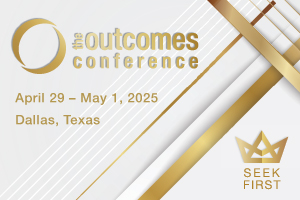
The Steward Leader: A Transformation of Roles by Howard Rich
By Howard Rich
The Parable of the Talents in Matthew 25 teaches the principle of stewardship, and the inescapable fact nothing belongs to a person that has not been entrusted to him by the rightful owner. God is the originator of everything in existence, He grants access to His resources at His discretion, and He has never abdicated His ownership.
Early Christians understood ownership rights were a primary competitor with Jesus for lordship in their lives. They modeled the way in service to Jesus because they understood “No one can serve two masters. Either you will hate the one and love the other, or you will be devoted to the one and despise the other” (Matthew 6:24). It is through this understanding of lordship that Christian steward leaders can joyfully submit ownership issues to Jesus and experience a transformation in their leadership.
One of the biggest barriers to overcome on the journey to steward leader is the idea of ownership. A Christian’s calling is to fall under the lordship and Kingdom of Christ; however, we are easily seduced and drawn into setting ourselves up as owners, we fall into a trap of rights, entitlements, and privileges. Despite our hope and desire to give Jesus total lordship, we hold certain things back, creating a barrier between us and Christ. Further complicating our ability to submit as stewards is the problem that many leadership models available to Christians are steeped in the conviction that owners have rights to the organization that often conflict with what might benefit customers, employees, the community, and even what might be best for the health of the organization.
Being set free from an ownership mentality allows the leader to pursue organizational goals without regard to personal desires that may be contrary to what God wants for that organization. Joyfully submitting to God’s complete ownership begins the transformation of our role as leaders. Our perspective changes from seeing ourselves as owners to seeing ourselves as caretakers. This release of ownership sets the leader free to fully rely on God’s direction.
Our role as steward is distinctive because it defines our relationship with God; it is our identity in Him. It also requires a complete dependence on God for every decision and action as His representative. Stewardship speaks to the core of who we are in relation to God and His creation. Seeing ourselves as stewards instead of owners requires a change of perspective that will affect the meaning of our lives. If we embrace the identity of steward, it will change every interaction we have, especially our relationship with God.
This is why we must have an ongoing, vital, and personal relationship with Christ. It is that relationship with Him that allows us to surrender ownership, serve others, and shepherd our followers. Freedom from ownership helps us see our need for personal devotion and prayer. Scripture and prayer are the conduits to understanding how Jesus wants our leadership deployed for Him.
When we view our role as a steward, we can see the position we occupy is not ours; it is Christ’s and we only do His bidding. Leading as a steward will help Christian professionals balance the perceived rights of owners, employees, and the community by realizing the entire organization and process of operating is entrusted to their care as a steward. Understanding leadership in terms of stewardship sets the leader free to invest in others, equipping those under their care to succeed and influence the world around them for Christ.
Take some time to reflect on your roles in relation to God’s ownership.
####
Howard Rich is the President of Steward Development Group, a leadership training and coaching firm established to help business professionals discover the freedom of generosity and stewardship.
Christian Leadership Alliance (CLA) believes in the transformational difference a mentoring relationship makes in the life of a leader.





